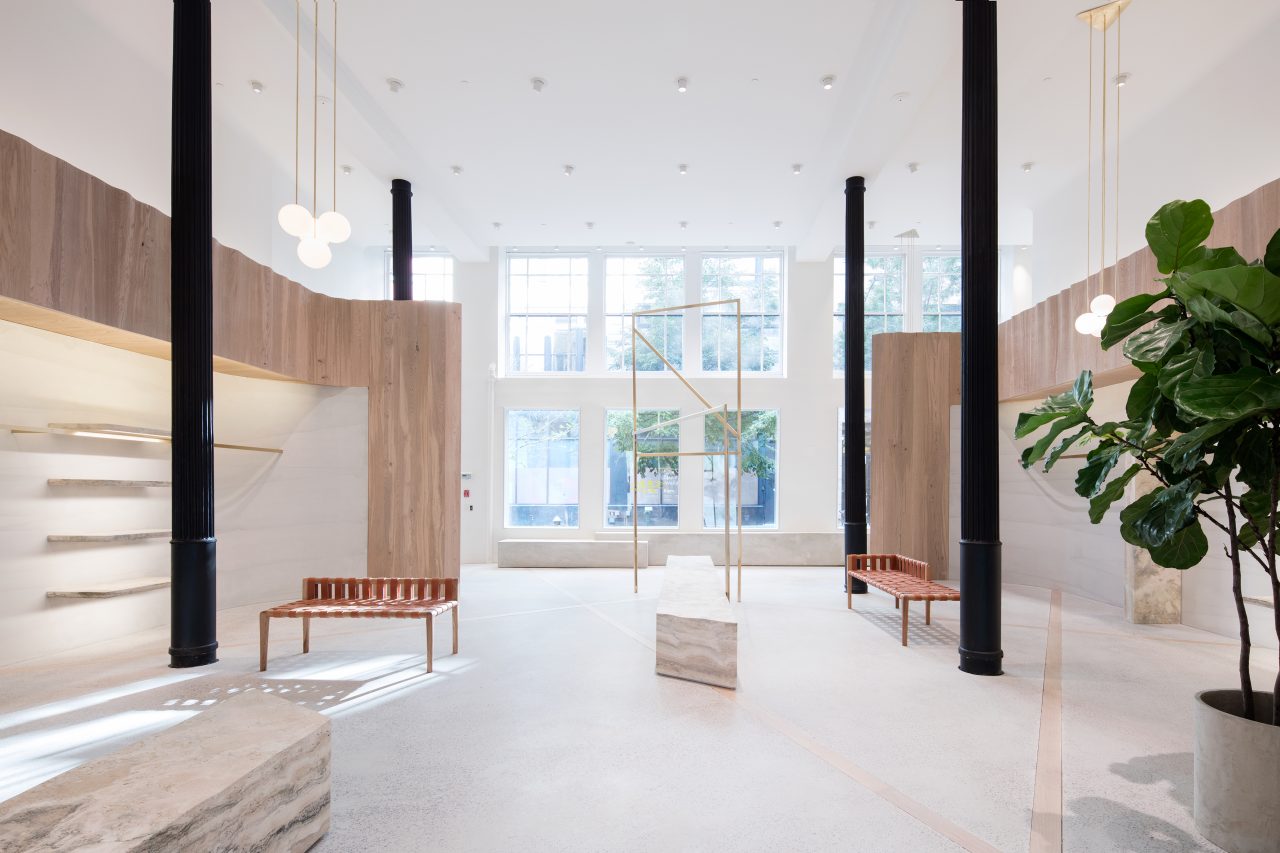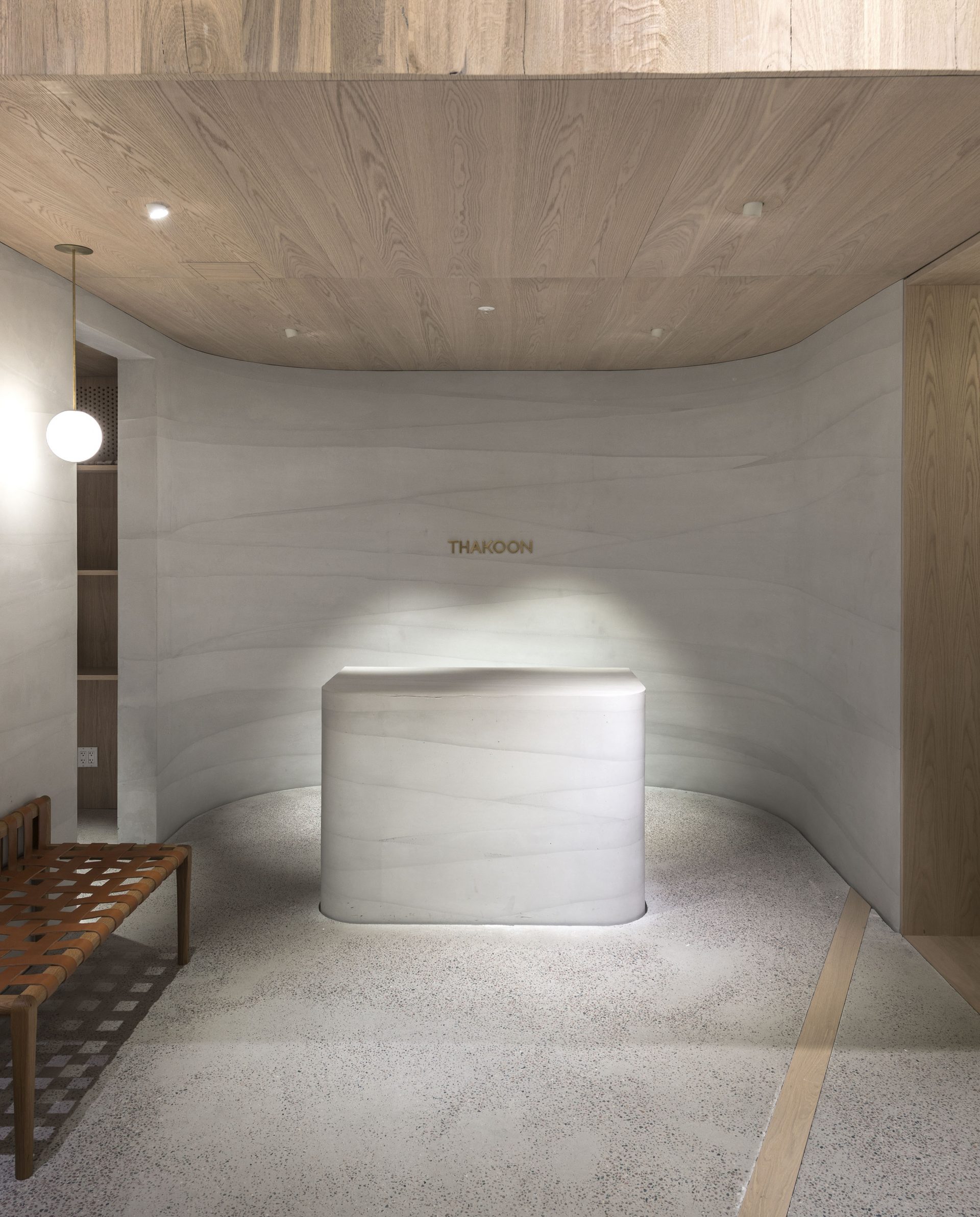Like an architect, fashion designer Thakoon Panichgul carefully balances contemporary and historical influences. His eponymous brand has won him fans from Michelle Obama to Target, but when it came time to build a brick-and-mortar store, Panichgul and New York–based SHoP faced a more complex balancing act. They wanted to carefully devise an interior that would reflect its Soho surroundings and the Thakoon aesthetic, all while grabbing the attention of passersby and setting itself apart from competitors.
“Thakoon was really interested in making [the store] of its place, of New York, bringing in the grit of the city,” said Coren Sharples, principal at SHoP. Concrete with dark aggregate covers the floors, and the architects tapped Brooklyn artist Fernando Mastrangelo of MMaterial to cast multiple concrete walls throughout the store. Mastrangelo reproduced the subtle gradients of his furniture on an architectural scale, pouring multiple layers of gray-hued concrete in a single casting. “This was crazy, it was done on site,” said Sharples. “This was formed up and poured. Really a little scary, but [Mastrangelo] was amazing.”
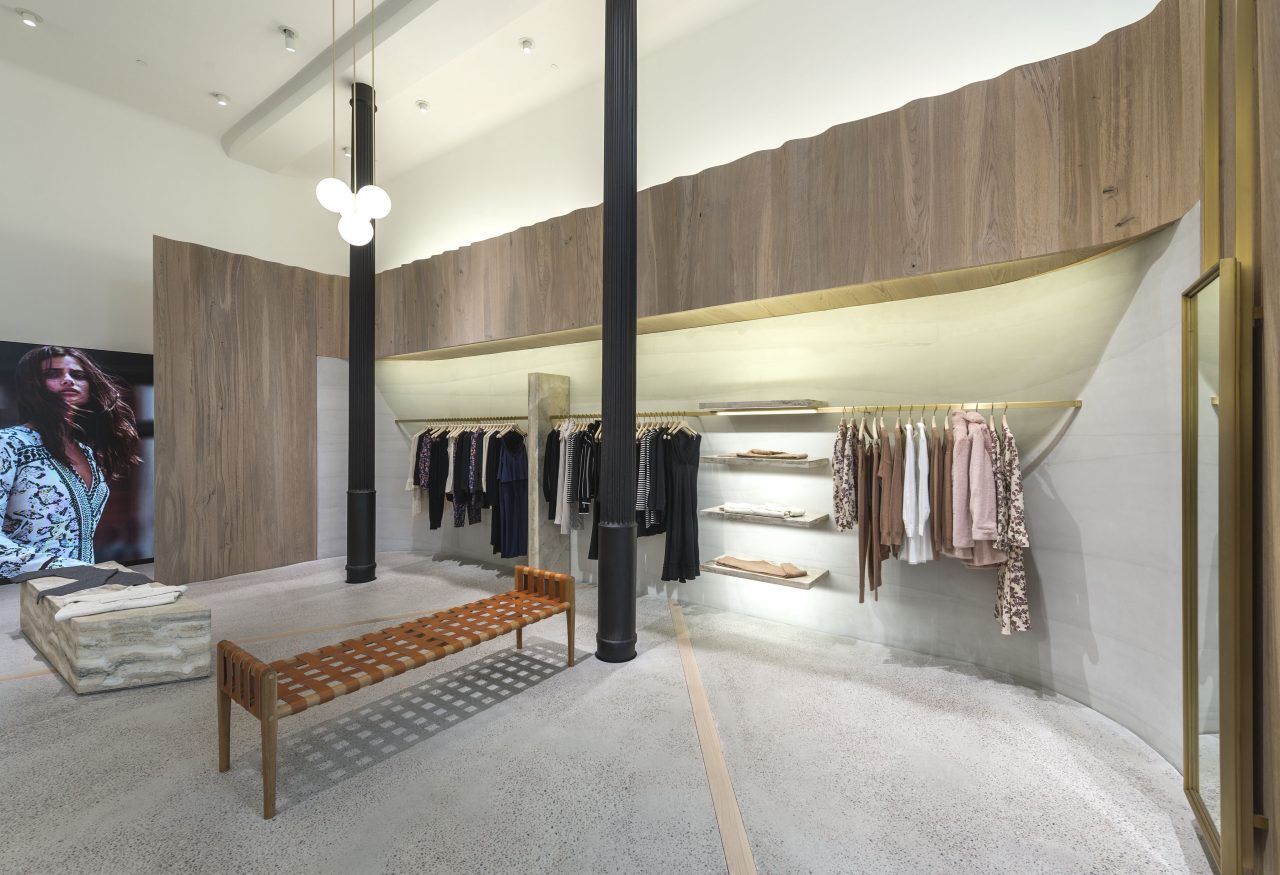
Wood was also an important part of Panichgul’s vision—the designer had prepared a mood board with several wood treatments that figured prominently in other fashion brands’ aesthetics. These ranged from light treatments with vernacular ornamentation (what he called “American Traditional”) to richly grained and darkly stained (“American Glam”). SHoP and Panichgul ultimately chose an unfinished white oak (“American Cool”), a look that left the wood in its raw, natural state. White oak surfaces sinuously undulate along the showroom’s walls even as they retain a dry, coarse texture. The architects and client also worked closely with Brooklyn-based furniture maker Vonnegut/Kraft on the store’s wood furniture: Connection details, leather seating, and each edge and taper went through multiple iterations before landing on a design that features simple woven-leather straps. Vonnegut/Kraft’s pieces stand in the main showroom and hug the curves of each dressing room.
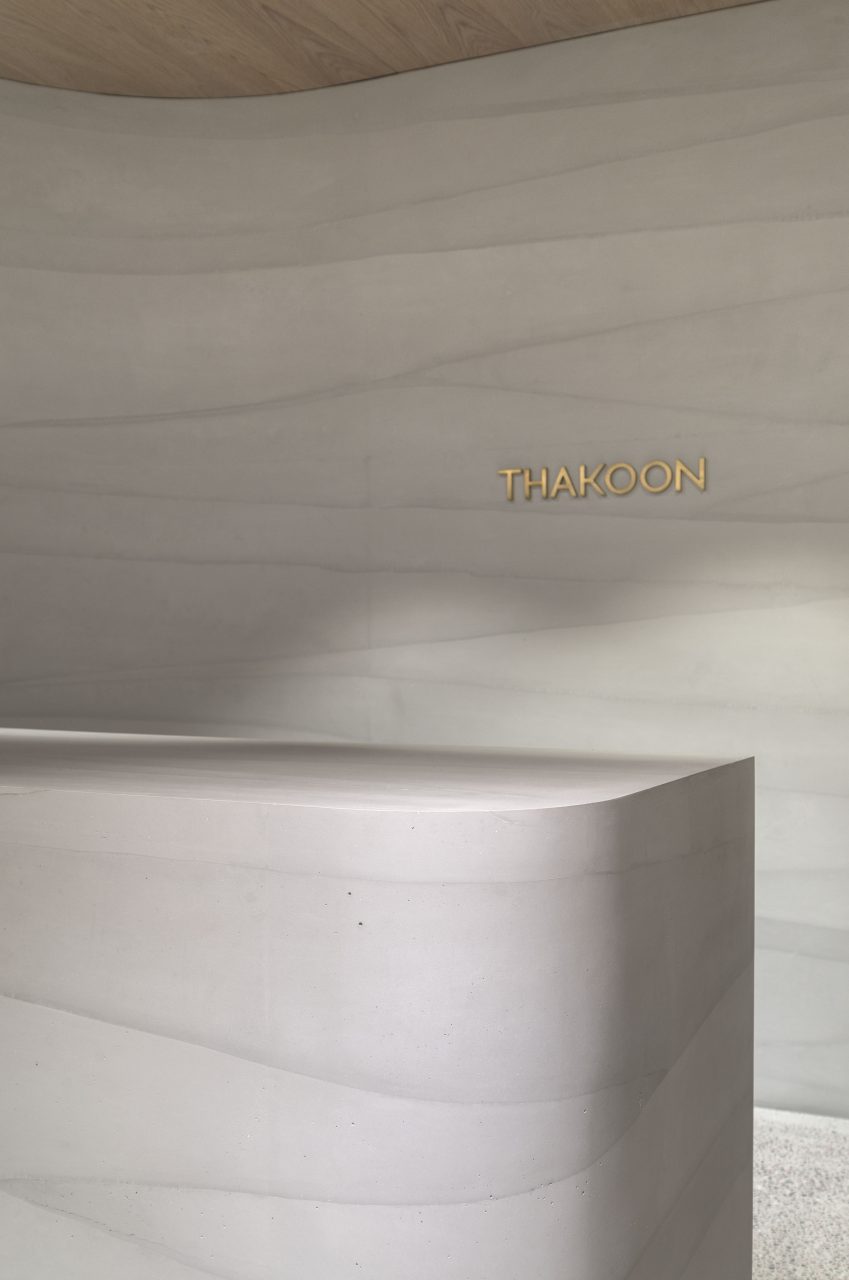
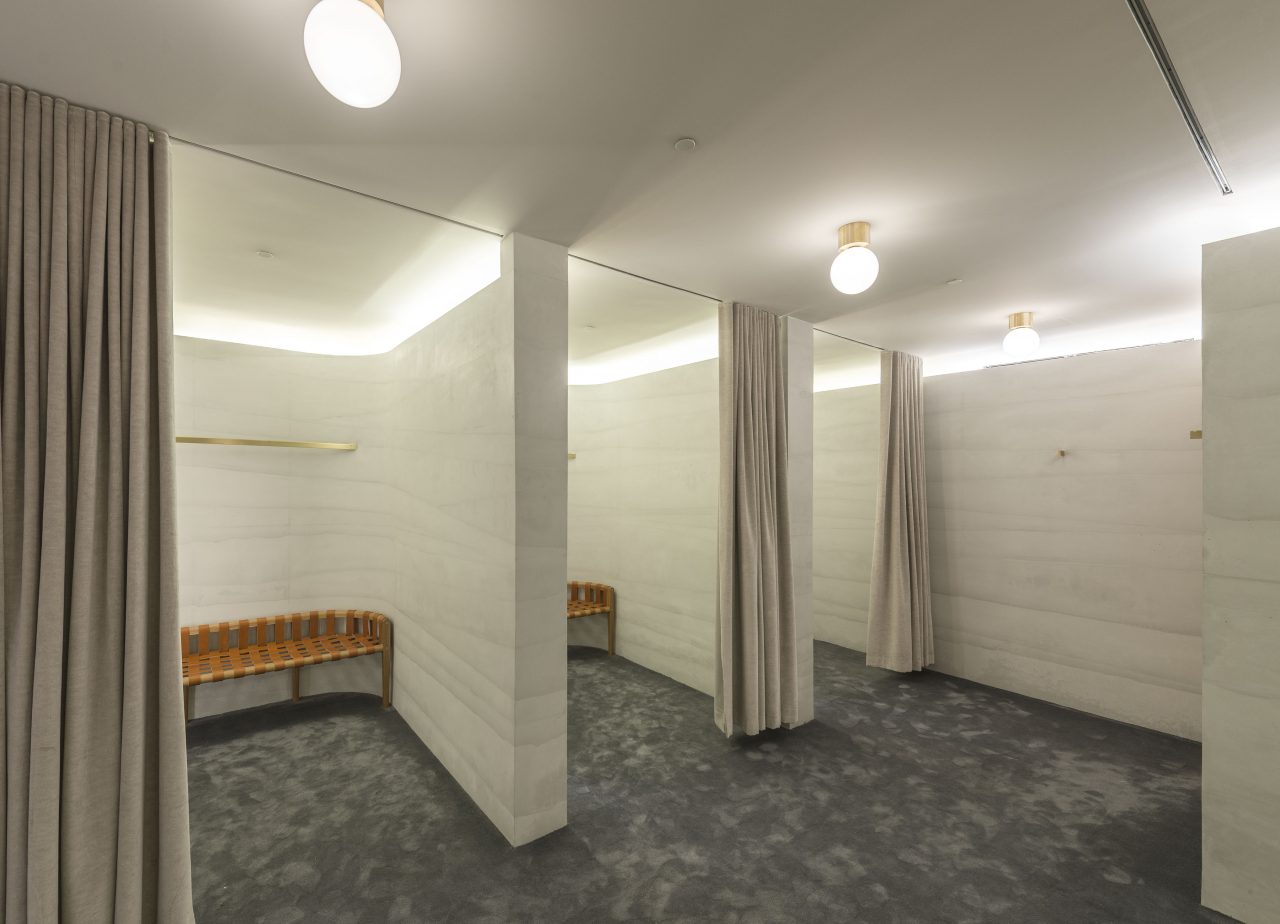
Extra seating is provided by travertine blocks that were CNC-milled in Italy to 3-D models provided by SHoP. Panichgul tapped London-based designer Michael Anastassiades for the principal lighting features: simple orbs with brass detailing. Brass is also used for the store’s clothing rods and the towering sculptural display rack that stands prominently in the main showroom.
Taken all together, the materials find ways to somehow be both angular and curved, smooth and gritty, even as their neutral tones give the clothing center stage. “We wanted it to be infused with material sensibility and warmth, but at the same time, it’s always this line you walk because you don’t want to overpower or dictate,” said Sharples.
